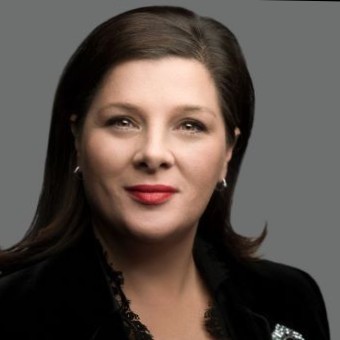
Self-Assessment Will Turn Failure Into a Result
When you find yourself in a tough situation or position that you hadn’t planned for when laying out the roadmap for a big project, decision, or career step, what is your usual reaction? Throw up your hands in defeat, or dig your heels in and fight to keep pushing toward the goal you’ve been so ardently pursuing? Melissa Peak discusses discovering what your personal and professional strengths are, and how to not completely derail all the hard work and planning you’ve put effort into when failure starts to appear on the horizon.
You can listen to this entire conversation with Melissa on our podcast, Work, Love, Pray! Listen below or click here to find your preferred listening platform.
Have you found any accurate and applicable personal strength assessments that would help a woman in the workplace identify what she wants her next steps to be?
One strategy would be to do your own “self-created 360.” Go to 12 people who sit in different seats around you and have different perspectives, and ask them, “What do you see as my natural talents?” and if you want to ask about work, ask them, “What type of work do you see me doing in a way that’s unique and differentiated?” Getting this input can be very valuable!
The element of success to this exercise is choosing your input providers very carefully, because you want to make sure you’re getting input from people who know you and want the best for you. But I would also say to find people you emulate. A lot of working women of faith don’t have women in their churches who know what they’re dealing with and could understand a day in their life. And that’s not a bad thing! Those are people who are part of our community, but picking people who also represent the day in a life that we have and getting their input is going to round out the feedback you want and need and give you a good perspective on some transferrable skills. Natural talents are transferrable skills. You could take your natural talents and apply them in a lot of different ways and possibly consider a career or life pivot.
Failure is a fairly inevitable part of planning but can sometimes also be an accurate indicator of needing to make a shift. Have you ever had to do a “failure pivot?”
We know failure is going to come, I agree, but we don’t always plan for that. In our planning, we have to include an answer to the question, “What am I gonna do when I feel like this isn’t working?” You need to determine your success metrics, because they will help you determine if a situation is really a failure or just a low point in a process. We always have lots of energy at the beginning of something, and then there’s the “messy middle” right about at the point where we’re getting to the “uphill battle” part of a tough situation. Lots of times, right about at the point when we’re just about to crest the top of the hill, we throw up our hands and we say, “This is too hard, I’ve failed.” And we stop. And this is why I think failure is an interesting concept!
For me, there were times very early in my career when I made a business decision based on feeling pressure from my management and also just my own pressure to perform. And those experiences led me to the realization that I would never again sacrifice my personal values for the sake of getting things done. For me, that’s a failure, because I sacrificed my personal values. In other situations, I’ve gotten to the point where I just felt like I wasn’t going to be able to “pull a rabbit out of the hat,” and those times are not necessarily a failure in my eyes, because they made me pause, step back and ask, “What’s going on here?” I will say that wise counsel is often really helpful if you’re in those moments to help assess what’s going on.
I’m a gardener, and I’m growing amaryllis bulbs right now, so I’ll use them as an example here! It doesn’t matter how expensive an amaryllis bulb is, it doesn’t matter how beautiful it is, and it doesn’t matter how much time and careful horticultural planning has gone into making this beautiful bulb. If I don’t plant that bulb in an environment where it can grow, it’s got nothing to do with the bulb if it doesn’t flourish. So many times, we are in difficult situations and we blame ourselves and say, “Something’s wrong with me.” No, there’s nothing wrong with you. You actually have everything necessary to get this thing done. However, the environment is not ready because there’s toxicity that needs to be taken out.
Pain is a good megaphone, right? When things aren’t going well, it’s a good opportunity to pause and evaluate what is happening, what your contribution is, and what environment you are in. If the environment isn’t going to produce the outcome you’re trying to achieve, no matter what you do, then it’s time to either find a new environment or change your goal. Self-assessment turns failure into a result. If we look at nature and the way God created it, there are seasons and there are chapters.
Just because you’re in a season where something feels like it’s coming to an end, that doesn’t mean that the whole season has been a failure—it just means that season is over and it’s time to gear up for the next season. You might also be shifting into a season where you just need to rest, not about producing fruit, or looking great or being center stage. You may be in a season of rest because in the future, you’ll come back into a season where you’re going to be producing fruit again and be in the limelight again.

Melissa Peak, is a seasoned management executive with more than 2 decades of experience leading organizations to growth and customer success, while building an engaged workforce. Leveraging her transformational leadership style, Melissa has repeatedly built thriving teams that deliver unprecedented market penetration, customer satisfaction, and revenue results. Career highlights include delivering double-digit, top-line revenue growth; placing a Fortune 500 company on the Federal GSA Schedule; 40% of direct reports promoted into expanded roles; creation and execution of a strategic digital marketing campaign resulting in a 400% increase in social media engagement after one year.
Melissa has led business operations with teams exceeding 200 people, and managed P&L responsibility exceeding $150MM. Over her career, Melissa has engaged with hundreds of employers as a trusted advisor on key talent strategies. By delivering powerful results for these employers, Melissa has built strong relationships with a large network of CEO, CIO, CTO, COO, CHRO, Diversity and Learning Colleagues across North America, with International impact.
As a first-generation college student, Melissa is a determined advocate for those who are taking a “road less traveled.” Whether it is hosting a conference, roundtable, one on one coaching or serving as a connector for the determine, yet un-equipped, Melissa has opened doors of opportunity for thousands of individuals. Melissa is proud to have been named a “2020 Top Woman to Watch” by Diversity Journal Magazine. She serves as a member of the Board of Directors for Women Business Collaborative, and an Advisory Board member for Working Nation.
Melissa resides in Goshen, KY with her husband Michael and their five children. She earned her Executive Certificate in Strategy and Innovation from Massachusetts Institute of Technology, Sloan’s School of Business, an MBA from the John Sperling School of Business at University of Phoenix, and a Bachelor of Science in Literature from Indiana Wesleyan University.
Be part of a global organization to impact 10 million women to integrate their faith at home and at work. 4word is a global organization with expansive networks connecting women every day. Join us and be part of the journey. To learn more about Journey 4word, click here!
